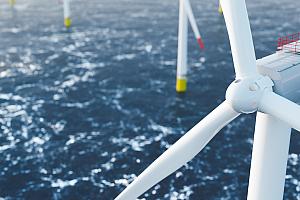EC invites Romania to consider more ambitious 2030 decarbonisation targets

The European Commission (EC) is inviting Romania to consider doing more for decarbonization than it has assumed through the Integrated National Energy and Climate Change Plan (PNIESC) for 2021-2030.
The Commission urges Romania to accelerate the transition to green resources, in addition to what it has assumed through the Plan.
It calls for more renewables, the renovation of buildings, and increased efficiency of district heating networks, more electric transport, and even the establishment of the legislative framework for charging environmental taxes, Economica.net reported.
The EC also considers that the renewable target (the percentage of energy obtained from renewable sources from total energy consumption) rising to 30.7% by 2030 is weak as a level of ambition, given that Romania's potential is 34%.
The energy efficiency targets concerning primary and final energy consumption are also considered "low" and "very low."
Notably, the CE estimates the funds that Romania can receive by applying to the 10d mechanism of the EU-ETS directive (Modernization Fund) at only EUR 3 billion, while the officials from the Romanian Ministry of Economy and Energy were talking about EUR 6.7 bln.
The discrepancy might partly be explained by the fact that the Commission's estimate is made at a carbon price of EUR 20 (per ton), while the price has long exceeded this level, reaching EUR 30 for a short time.
(Photo: Brad Calkins | Dreamstime.com)
andrei@romania-insider.com
















